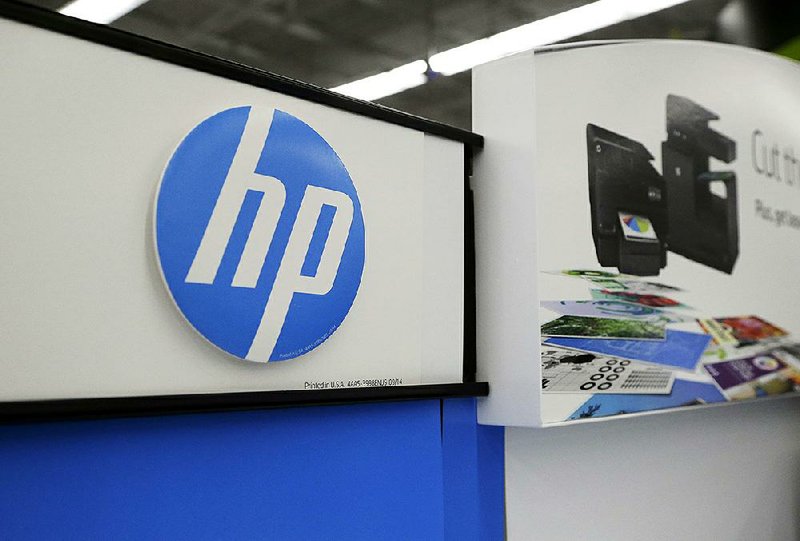Xerox Holdings Corp. said it plans to present its case for a tie-up with HP Inc. directly to the target's shareholders, in its latest push for a combination.
In a letter to HP's board Tuesday, Xerox said it won't apologize for its "aggressive" tactics in pursuing the company after being spurned twice.
Xerox will go straight to stakeholders "to solicit their support in urging the HP Board to do the right thing and pursue this compelling opportunity," the Norwalk, Conn.-based company said. "Your refusal to engage in mutual due diligence with Xerox defies logic."
Xerox has not specified how it will proceed with its pursuit of HP. There are several avenues it may choose, including a hostile takeover through a tender offer or a proxy fight, with the one-month window to nominate directors to the HP board opening on Dec. 25.
HP did not immediately respond to a request for comment.
Later Tuesday, HP Inc. gave a profit forecast that topped Wall Street estimates, projecting optimism that a broad restructuring will pay off while spurning a Xerox takeover.
Xerox Holdings Corp.'s stock slid 1.2% to $38.30 in Tuesday trading, while HP fell 0.5% to $20.06 in New York.
HP has said it's open to exploring a deal, but only if it can do due diligence on Xerox to ponder an acquisition of the photocopier-maker.
"It is clear in your aggressive words and actions that Xerox is intent on forcing a potential combination on opportunistic terms and without providing adequate information," HP said Sunday in a letter. "Your now-public urgency to accelerate toward a deal, still without addressing these questions, only heightens our concern about your business and prospects."
HP's board of directors has unanimously rejected Xerox's $22-a-share bid, valued at more than $33 billion in cash and stock. The board said it had significant questions about the trajectory of Xerox's business and that Xerox would saddle the combined entity with too much debt if it were the acquirer.
Backers of a combination of the aging technology stalwarts include investor Carl Icahn, who disclosed a 4.2% stake in HP in the third quarter, according to regulatory filings. Icahn, who owns a nearly 11% stake in Xerox, has said he supports a tie-up between the companies.
HP's earnings report Tuesday said profit, excluding some items, will be between $2.24 a share and $2.32 a share in fiscal 2020. Analysts, on average, estimated $2.24, according to data compiled by Bloomberg News. In the fiscal fourth quarter, the hardware-maker's sales and adjusted profit topped analysts' projections.
On Sunday, HP reiterated its stance that it has many options to create value for shareholders that don't involve a combination with Xerox. Those options include other merger and acquisition opportunities and share buybacks.
"The results show that our strategy is working, and we're driving both short- and long-term value creation," Chief Executive Officer Enrique Lores said in a news briefing.
Fiscal fourth-quarter revenue came in at $15.4 billion, little changed from a year ago and ahead of analysts' average estimate of $15.3 billion.
HP's printing division, a major source of profit, has experienced falling sales because of weaker demand for ink supplies. HP has announced a major restructuring to stabilize the company, which could result in as much as a 16% reduction of its workforce by the end of fiscal 2022.
"Related to Xerox, I feel like we have seen this movie before when Carl Icahn meddled with Dell in a similar way," said Patrick Moorhead, an analyst at Moor Insights & Strategy. "Xerox is a third of the size of HP, has been steadily declining in revenue, is running out of options, and needs HP more than HP needs it."
In the period that ended Oct. 31, sales in the printing division fell 6% to $4.98 billion, with ink supplies dropping 7%. Consumer revenue declined 10%, and commercial sales decreased 2%.
"We continue to lead in a tough market," Lores said of the printing industry. "We continue to grow in the categories that we consider important," such as managed print services and instant-ink delivery services.
Revenue from personal computers increased 4% to $10.4 billion, with 8% growth in commercial revenue offsetting a 4% decline in consumer sales. Corporate clients are upgrading their computers to adopt Microsoft Corp.'s Windows 10 operating system.
Business on 11/27/2019
